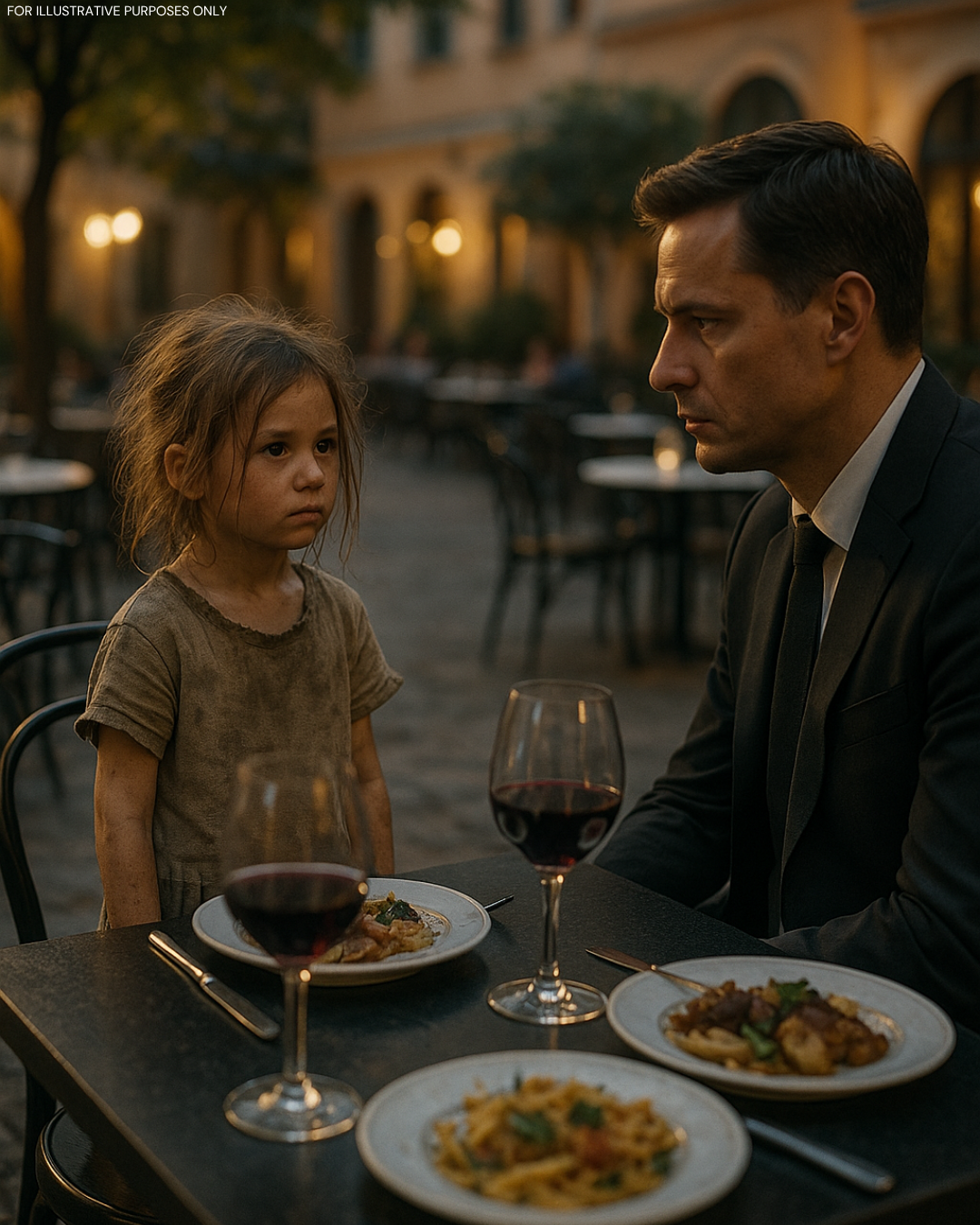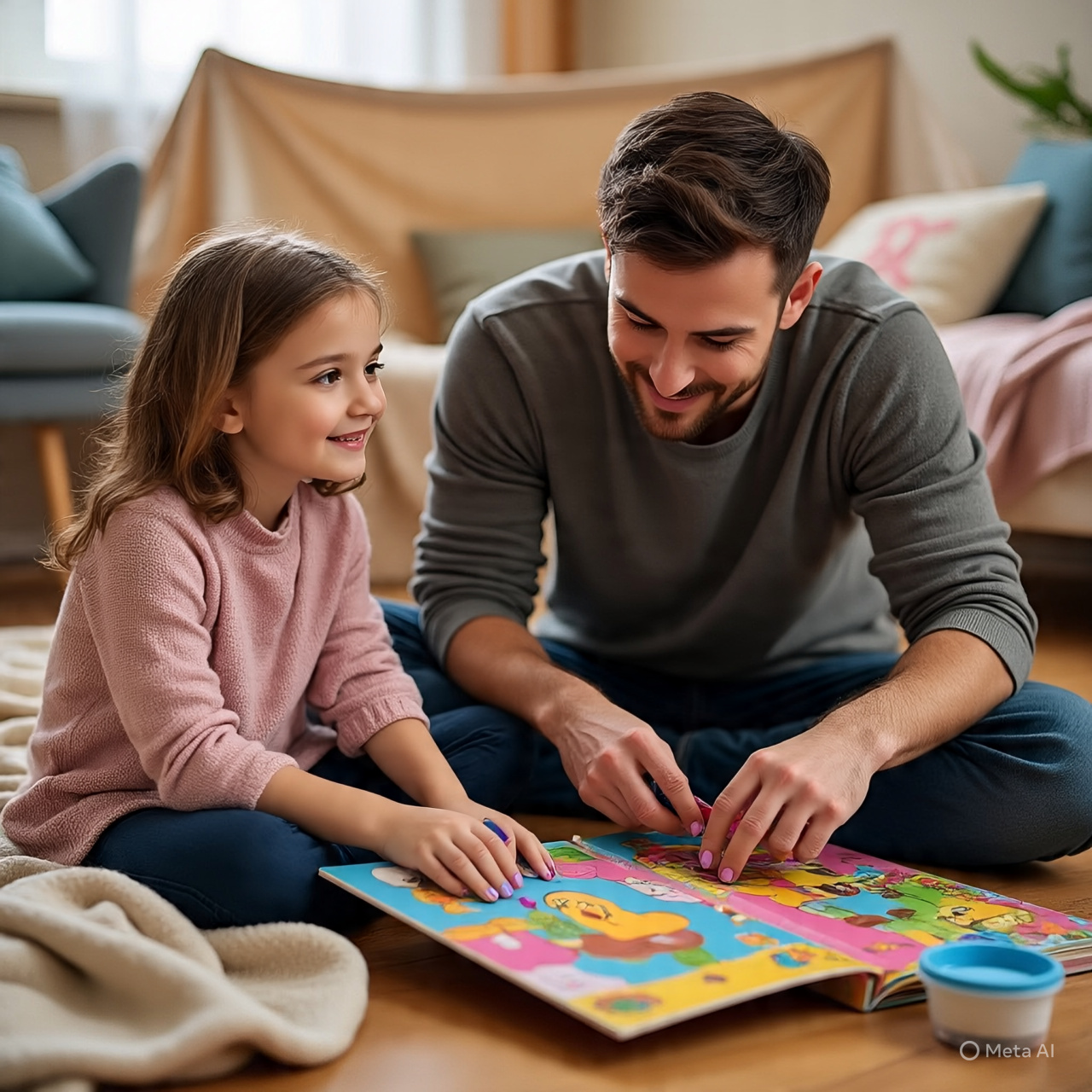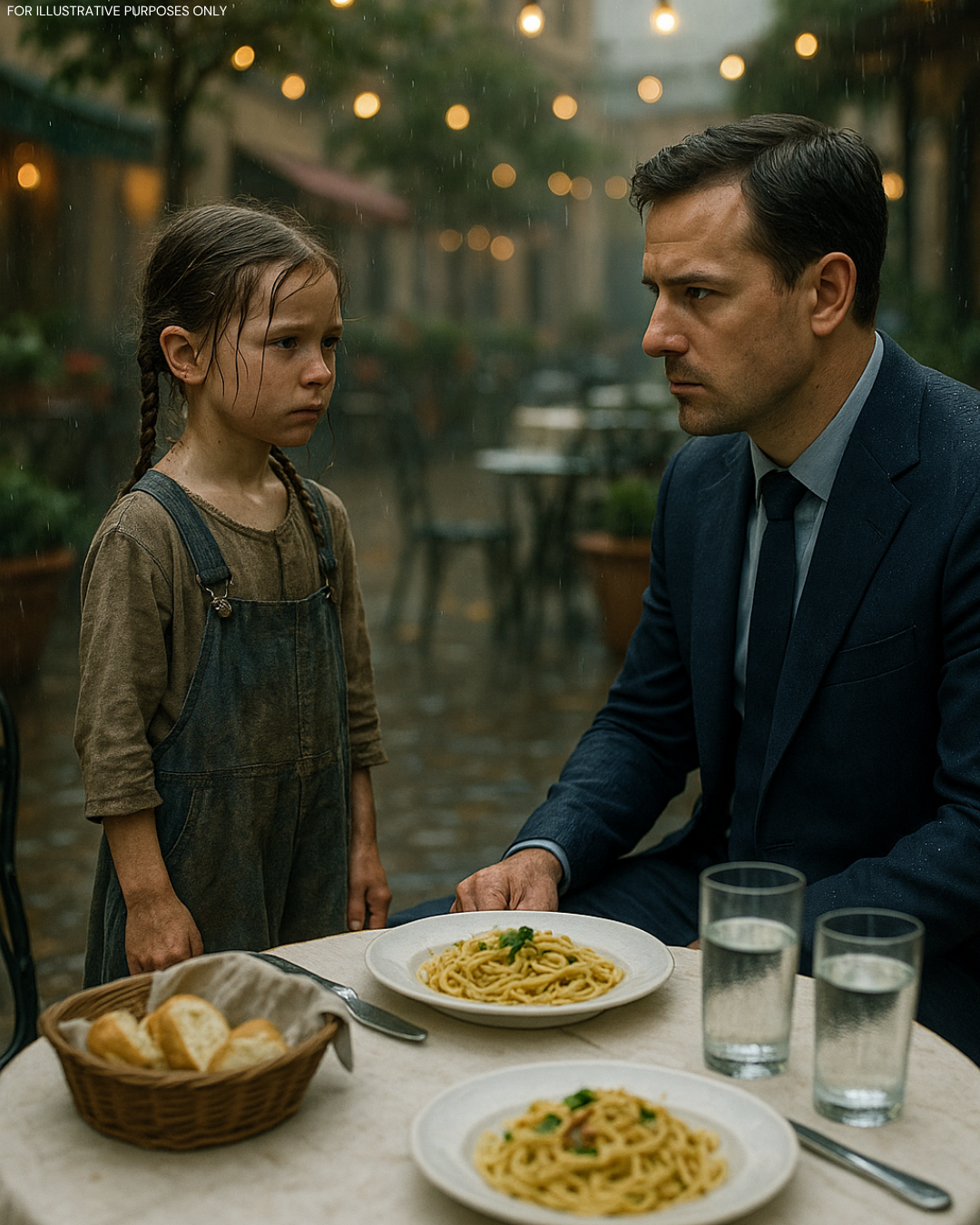
The hum of conversation drifted across the candlelit terrace of Belle Maison, the most coveted dining spot in Manhattan. Soft jazz floated in from a corner trio, mingling with the scent of rosemary lamb and fresh brioche.
At a secluded table near the fountain, Adrian Caldwell sat alone. In his late thirties, impeccably dressed in a slate-gray suit, he had the air of a man accustomed to perfection—and entirely unmoved by it. Plates of roasted sea bass, asparagus drizzled in hollandaise, and a perfect crème brûlée sat before him, untouched.
He scrolled aimlessly through emails on his phone, barely noticing the waiter topping up his glass of Pinot Noir.
Just beyond the gilded gates of the terrace, a small figure stood in the shadows. Nia was maybe eight, her hair tied in uneven puffs, her thin shoulders lost in a faded hoodie several sizes too big. The cuffs hung over her hands, torn at the edges. Dirt streaked her sneakers; the sole of the left shoe flapped slightly when she moved.
She had been standing there for almost an hour, watching diners laugh over their courses, hoping that someone—anyone—might hand her the remains of their meal on the way out. No one did. A busboy carrying a tray of half-eaten bread paused by a bin in the alley. Nia inched closer.

“Back off,” the busboy snapped. “This is private property.”
She stepped back quickly, eyes dropping to the ground. Hunger gnawed at her, but humiliation burned sharper. Then she saw Adrian. He was alone. In front of him, enough food to fill her stomach three times over.
Her legs moved before her mind caught up. She slipped through the open gate, each step across the stone terrace drawing the stares of women in silk and men in tailored jackets. A hostess’s hand twitched toward the security phone.
Nia’s gaze never left Adrian. “Mister,” she said quietly, her voice shaking, “can I… can I eat with you?”
The waiter froze. Conversations died mid-sentence. Adrian looked up from his phone, his brow furrowing.
For a moment, the world seemed to hold its breath.
The waiter stepped closer. “Sir, should I have her escorted out?”
Adrian didn’t answer right away. He saw the hollowness in her cheeks, the desperate grip she had on her sleeve. Memories flickered—cold nights in a shelter when he was eleven, the sting of being ignored by strangers who walked past without a glance.
“No,” he said at last, his voice firm. “Bring another chair. And the best plate you have, quickly.”
Gasps rustled across the terrace.
Adrian gave a small nod. “What’s your name?”
She hesitated. “Nia.”
“Come sit, Nia. Tonight, you’re my guest.”
The waiter’s jaw tightened, but he fetched an extra place setting. Adrian slid the bread basket toward her first. “You’re shivering. Eat slowly, there’s plenty.”
As she took her first bite, tears slipped silently down her face. Adrian glanced around at the watching tables. “You’re all staring,” he said evenly. “Maybe think about why a child had to come in here and ask for food.”
When the roasted chicken arrived, Nia hesitated again. “Don’t you want it?”
“I’ve had enough for a lifetime,” Adrian said quietly. “Tonight, it’s yours.”
Between bites, she murmured, “My mom used to cook chicken like this. Before… before she passed away.”
“What about your dad?”
“He left. Said I wasn’t his problem.” Her voice was so small, it almost disappeared under the music.
Adrian’s chest tightened. He reached for her hand. “You are never a problem. You are worth care, and love.”
A woman at a nearby table dabbed at her eyes. The restaurant manager, who had approached ready to intervene, stopped short.
“She’s eight years old,” Adrian said to no one in particular, his voice carrying. “Think about the courage it takes to walk in here alone and ask for help.”
Leaning closer to Nia, he whispered, “You don’t have to beg again. I’ll make sure of it.”
Her head snapped up. “You mean… I can stay with you?”
“Yes,” he said without hesitation. “Warm clothes, a safe bed, and tomorrow morning pancakes.”
She let out a choked laugh, then flung her arms around him. “I’ll be good, I promise.”
“You already are,” he murmured.

When they left, diners stood—not in outrage, but in quiet acknowledgment. One man slipped a folded bill onto Adrian’s table with a note: For her tomorrow.
In the car, wrapped in a fleece blanket, Nia asked softly, “Are you rich?”
Adrian smiled faintly. “I thought I was. But tonight, I found something worth more than money.”
Her eyes fluttered shut, a small smile still on her lips. “You’re the kindest person I’ve met.”
“And you,” Adrian whispered, “are the bravest.”
